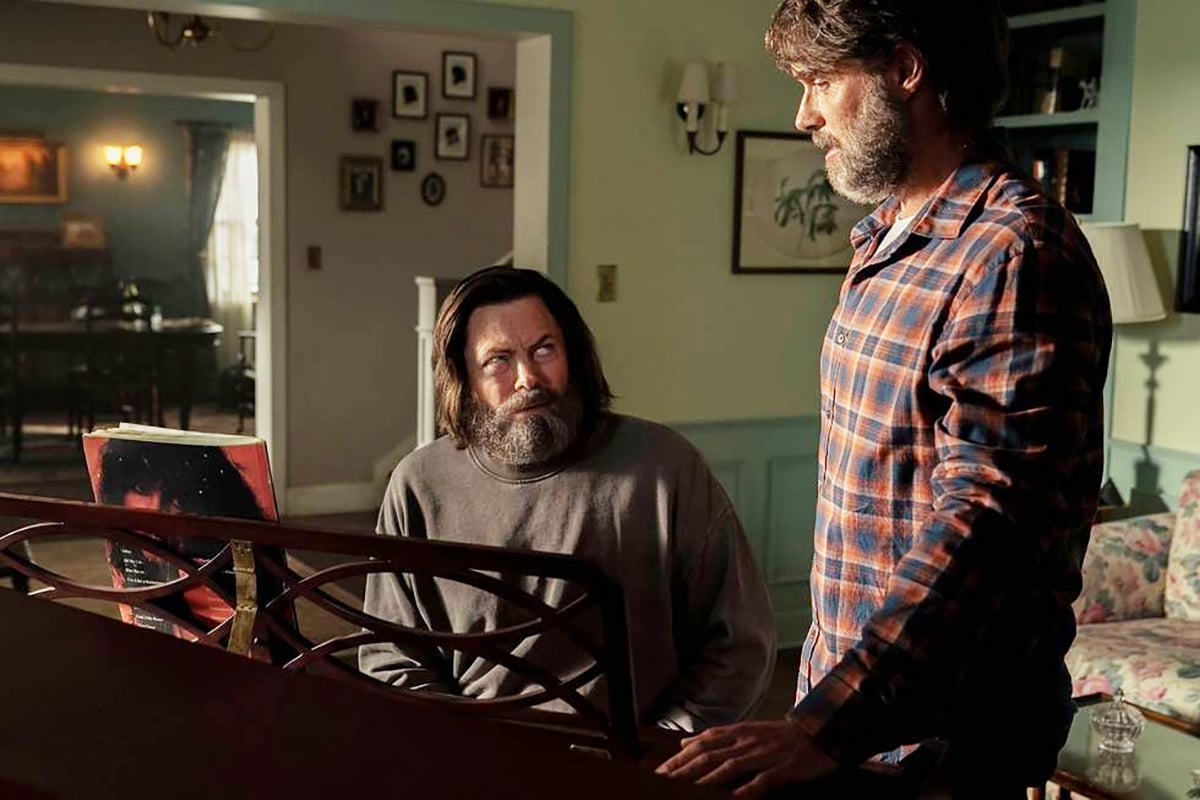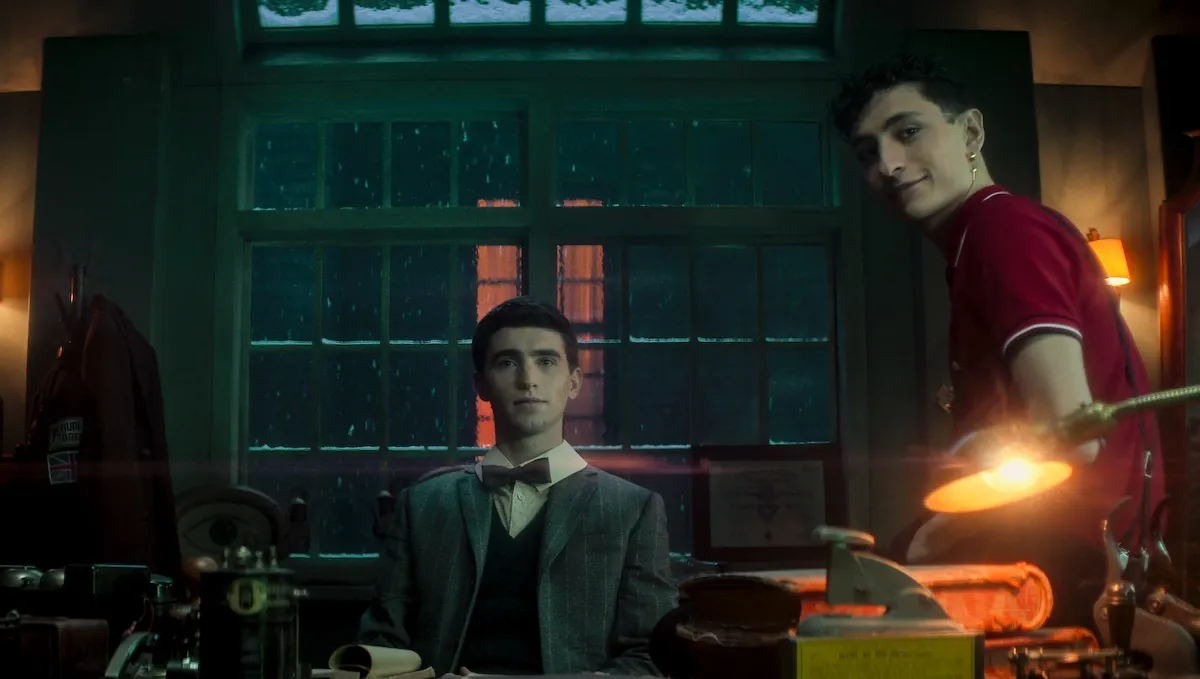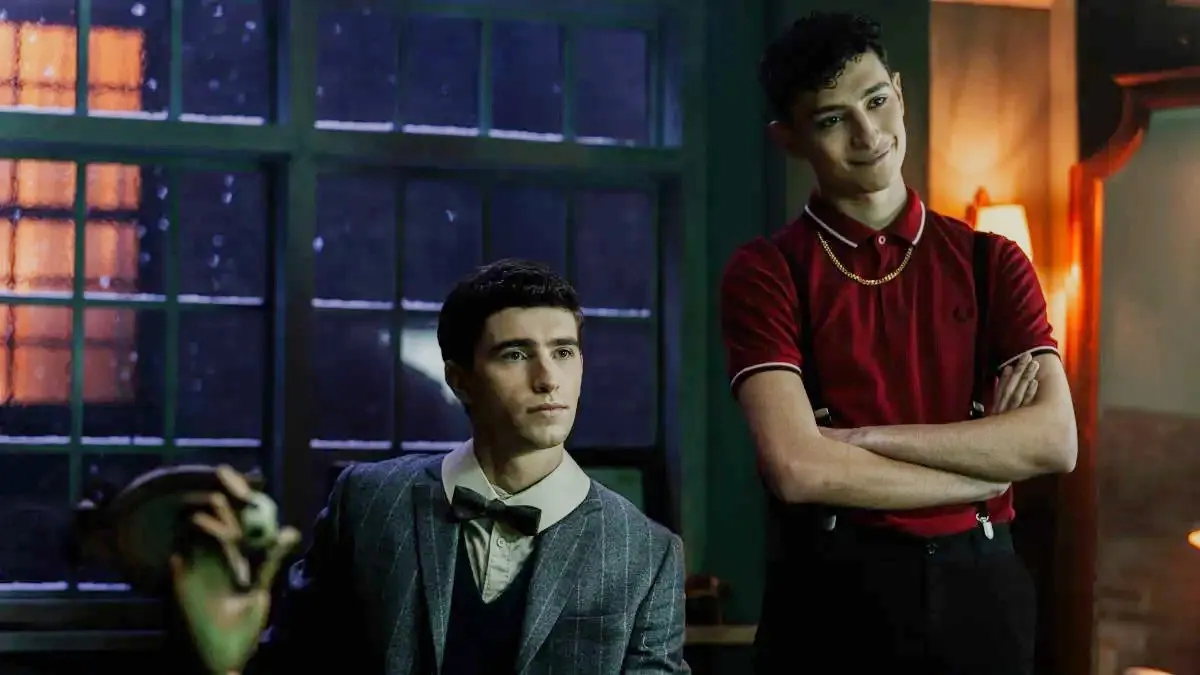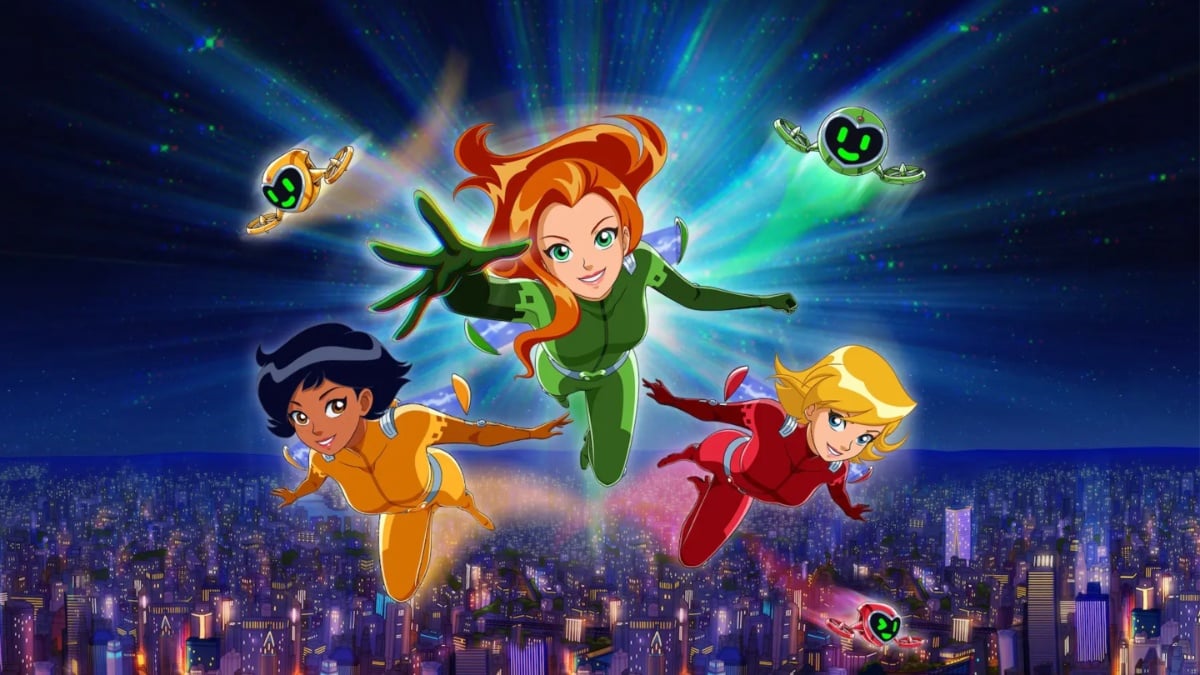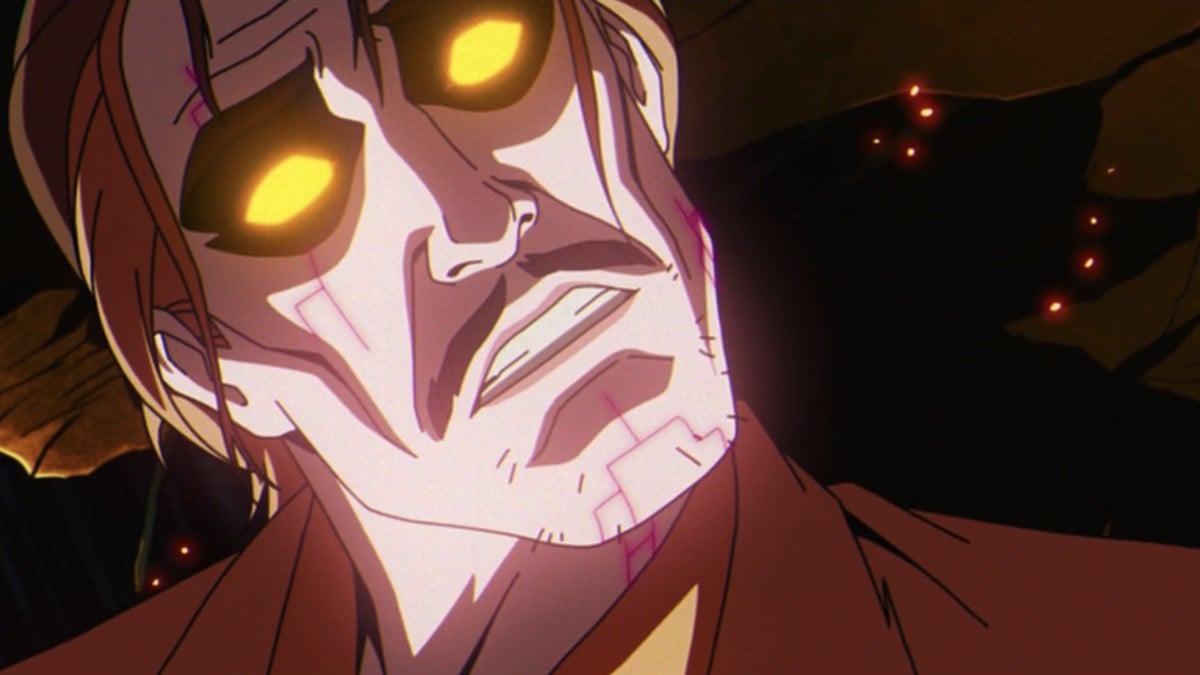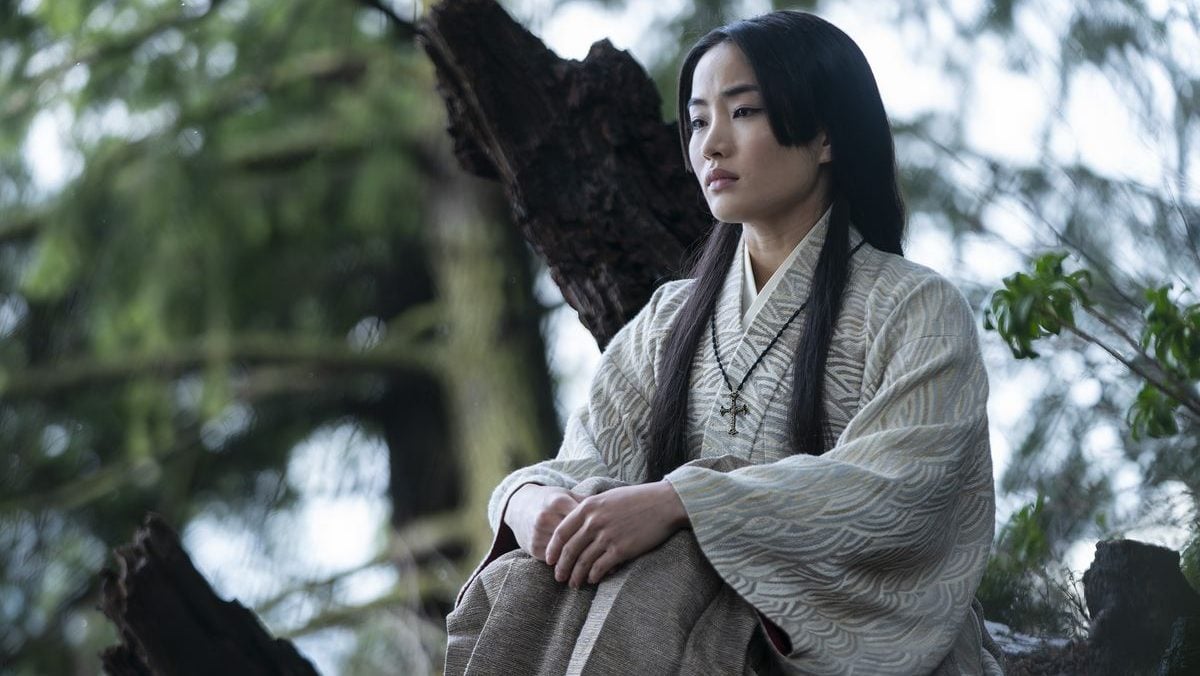There’s no doubt about it, HBO’s The Last of Us is a bona-fide modern classic. The not-zombie survival series sunk its teeth into audiences with its stunning performances, unrelentingly heartbreaking writing, and impressive production value. It’s the dream scenario for any video game adapted for TV. But one of the most unexpected and already-beloved episodes of the series came as a surprise to fans of the game. Episode three, “Long Long Time,” was an almost entirely new narrative for the mostly true-to-source-material show. The creative risk resulted in an intimate portrait of happiness among horror.
At the center of it all is Nick Offerman’s Bill, a character who existed in The Last of Us game, but whose role in the narrative is changed to allow for a franchise rarity—a happy ending. Through a sweeping romance with Murray Bartlett’s bright-eyed Frank (another character whose role is drastically increased from the game), The Last of Us gives Bill a beautiful, cathartic story of self-discovery and life-long love. And an unexpected, affirming narrative that queerness doesn’t look a certain way.
Bill and Frank’s backstory
In The Last of Us video game, Bill’s chapter is centered around clever game mechanics—traps set that the player has to navigate through. Plus, there’s snarky dialogue interactions with Ellie that make for a punchy, but ultimately familiar, story in the scope of the game’s world. Though it’s not elaborated on further, Bill does tell Joel that he had a partner named Frank. At one point, they stumble upon his dead body and a bitter letter he’s written Bill, explaining that he couldn’t take a life without joy or warmth in it.
Though Bill’s chapter in the game is certainly well written and strong in its own right, co-creators Craig Mazin and Neil Druckmann opted to change and expand on him for the series. They dedicated an entire episode to his 22-year romance with Frank. We’re introduced to Bill just as we met him in the game: a burly, paranoid doomsday prepper with a penchant for violence and an affinity for watching infected meet gruesome ends at the hands of his meticulously-built traps. Just like in the game, Bill is the sole resident of a paradise of his own creation. He’s built an impenetrable fortress in his town that serves as Joel and Ellie’s destination for the episode.
But though Bill may be the one person in the apocalypse who’s got more than what he needs to survive, the unexpected arrival of wandering survivor Frank brings to light the truth of Bill’s post-apocalyptic life: he may be surviving, but he’s not living. Though Frank’s easy smile and friendly charm have Bill suspicious at first, he soon welcomes the stranger in. By the end of the evening, both Bill and Frank are undeniably drawn to each other. Frank staying at Bill’s for “just a few days” becomes a 22-year love story, culminating in a marriage and the closest thing the apocalypse has to a “happy ending.”
In The Last Of Us, happy moments are a rarity, used more as examples of what our heroes have lost as opposed to something they get to experience frequently. Ellie and Joel’s tale is one seeped in tragedy. Though there’s beauty and merit in that kind of melancholic story, Bill and Frank’s one-off episode is an invention of the series that gives our heroes with a rare glimpse of true happiness.
An important, different depiction of queerness
More than just a portrait of a beautiful romance, though, Bill’s story is also an intimately personal one. We watch in real time as he goes from a introvert used to living in seclusion and denial, to a happily married and utterly content old man who’s found joy in living as he truly wants to. It doesn’t take long for Frank to clock that Bill might be queer. But it’s clear from his hunched posture, nervous eyes, and succinct speech that this is hardly a revelation Bill has come to terms with himself.
After pouring his heart out on the piano performing Linda Ronstadt’s “Long Long Time” (Bill and Frank’s unofficial anthem and the episode’s namesake), Frank asks Bill, “Who’s the girl you’re singing about?” Bill replies, “There is no girl,” and Frank simply says, “I know.” Prior to the crumbling of the world, Bill lived in fear, suspicion, and isolation. He armed himself to the teeth and hid his true self away from the world for fear of rejection.
It’s ironic, perhaps, that only in the apocalypse is he able to truly embrace who he is—and only then with the love and compassion of the sunny, extroverted Frank. Though Bill’s isolation made him a strange outlier in the world before the infection, his solitude eventually allows for a near-utopian paradise for him and Frank. It’s not only one where they have all the resources that they need, but one where they can wholeheartedly savor their love for each other, free of judgement from the outside world.
One imagines that Bill is the type of man who may never have come out before the apocalypse: a second amendment enthusiast, a thick-skinned survivalist, and a tense, suspicious conservative. He’s representative of queer people who are so deeply intrenched in denial and self-loathing, they’re unable to come out to themselves or others. Though the Cordyceps infection may have destroyed the world, it created a haven where an older, conservative gay man could find the kind of love and fulfillment most of us only dream of.
The Nick Offerman praise corner
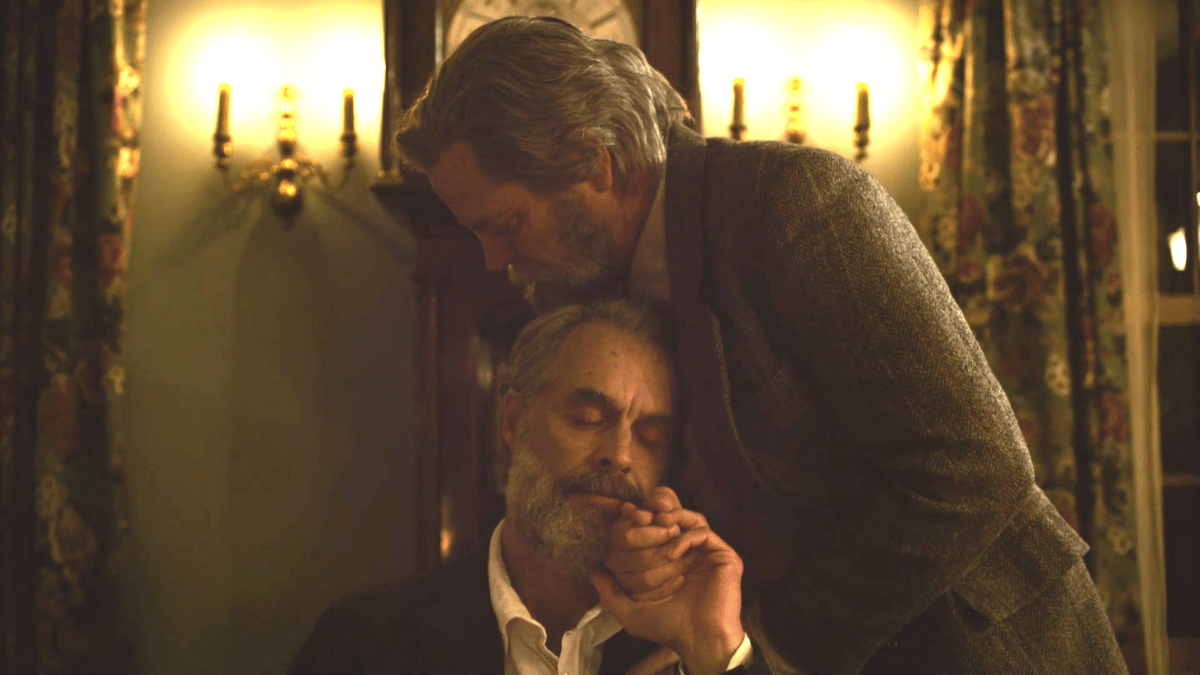
Though Craig Mazin’s script is already enough to send the episode in to the upper echelon of one-off television greats, the true magic of “Long Long Time”—and the key to making Bill’s story to impactful—is Nick Offerman’s beautiful, heart-wrenching performance. Murray Bartlett’s Frank is worth celebrating in his own right, as the perfect optimistic, gentle light. But seeing Offerman—an actor famous for his Uber-manly, stoic characters—give such an unexpected, career-defining performance is what truly puts the episode over the edge.
Every suspicious flicker of his eyes and hunched movement of his shoulders speaks to a man who is used to living in denial and fear. Offerman commits bodily to painting Bill as someone who’s believably spent the entire apocalypse heavily armed and locked away in a fortress of solitude. His transformation is all the more stunning, then, when we see what Bill looks like truly happy. Though he’s still paranoid, that paranoia becomes a steadfast dedication to protecting Frank—a purpose that (as Bill says on the last day of their time together) Bill is able to find joy and peace in dedicating his entire life to.
This is still The Last of Us, though. Bill and Frank’s story does end in both of their deaths. But while they may be dead by the time Ellie and Joel find them, their ending doesn’t feel tragic—quite the opposite. After spending 22 years in loving peace and happiness with each other, Bill and Frank make the mutual decision to go out on their own terms. It’s a beautiful sequence that doesn’t leave a dry eye in the house. It also isn’t a conventional tragic queer ending. Instead of simply killing off their gay characters or subjecting them to the horrors of the infected world, The Last of Us gives its queer leads a paradise they can call home, and a cathartic experience for viewers.
(featured images via HBO)



